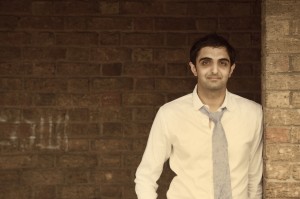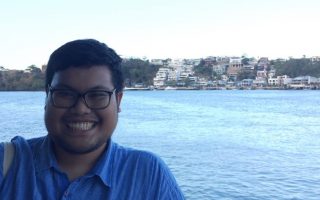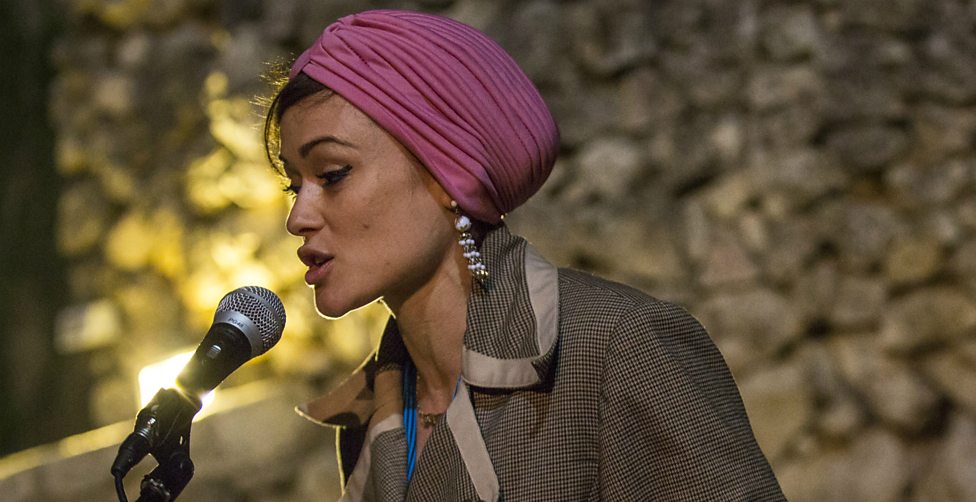
1) Could you tell us a bit more about yourself and how you stumbled into writing?
I was born and grew up in Derbyshire, in the north of England. After attending the local schools I went to university in London. It was really at university that I started reading novels. At first I think I was reading for pure pleasure, but somewhere along the line my reading eyes must’ve started looking through the page and asking questions of the writer beyond: how is he doing this? why did he do that then? And I think once I started wondering how a novel is put together it was only a matter of time before I wanted to have a go myself.
2) Ours are the Street, is your first novel. How did you find the novel writing process and how long did it take to complete the book?
I started the book in mid-2006, and it took between three and four years to write. I went through several drafts. The trickiest part was finding a frame inside which to tell the story. But once I’d resolved to write the story in the first person, presented as the narrator’s written account, then things seemed to go less haltingly.
I don’t think I found the novel writing process fun – it wasn’t carefree enough an endeavour to be that – but it was always absorbing: I remember the occasional Sunday when I’d start writing in the morning, and it felt like the next time I looked up from the keyboard the sun was going down and I was still in my shorts and the day had just gone.
3) In your own words, what is the book about?
I think I’d say the book’s about Imtiaz Raina – the son of immigrants – and his travails as a young man from the north of England. I think he’s a very sensitive guy who feels in some way inadequate and unfulfilled, and like perhaps many people who have an acute sense of their own failures – even when, or especially when, those failures exist only in their own mind – he has I think quite a self-aggrandising sense of his own responsibility towards those he cares for.
I think the novel tries to show how Imtiaz yearns for, and then in Pakistan thinks he finds, a place where he belongs. In a way, I think that’s Imtiaz’s tragedy, that he confuses a sense of belonging with the difficulty of finding your own place in the world.
4) Given the heightened sense of alarm of home grown terrorism and muslim extremism – how do you hope your book will add to the debate and what message did you want to get across?
If there is a debate on this subject then perhaps it tends to circle around two poles: either it’s all explicable and in reaction to western foreign policy, or, on the other hand, these young men are crazed fanatics. I think I believe that any answer – or maybe just a better question – lies somewhere between those two posts, and that the novel is a form that could perhaps turn a flashlight onto some of those internal psychological forces. Which must mean that I believe there’s a disconnect between what we see and hear of these young men – on martyrdom videos, in letters left to the media – and the underlying psychology at work: that what they say and sound like on those videos is not all that’s happening down in the centre of themselves.
I don’t think there was any particular message I wanted to get across; in fact, I was keen to avoid giving the book a rationale, in that sense. I think I was just trying to look at a situation – a young man born in the north of England who decides to die – and look at it with as strong and non-judgemental and unsentimental a gaze as I could, and then write down what I saw as honestly and as accurately as it was possible for me to do.
5) What research went into making the book as authentic as possible?
I’ve never been to Pakistan, Kashmir or Afghanistan, so most of my research centred around understanding what life in those countries would be like: how do people get from A to B? what do they eat? wear? I do make frequent visits to my family in India and I drew heavily on that when writing about Imtiaz’s experience of Pakistani village life. Imtiaz’s ancestral farm in the book is based on my own family’s farm in Punjab.
As for character, there were a couple of incisive articles going into the psychology of suicide bombers which I found useful to read, but, on the whole, I think the character of Imtiaz was more an imaginative construction, rather than one built to fit a researched idea of a suicide bomber.
6) I found the book disturbing and uncomfortable to read. What has the general response from people on the street been?
Positive, I think. I’ve been delighted by the many serious and perceptive and thoughtful responses to the novel and, in particular, to Imtiaz’s predicament. Like you, several readers have said they’ve found aspects of the novel unsettling.I am really interested in readers’ responses, though, and I think that’s probably because for me writing is in some very necessary sense a two-way act of communication between writer and reader. I do find it amazing and sobering to imagine someone whom I’ve never met, and probably never will, reading my book and trying to communicate back with me.
7) There were many parts of this book which I didn’t agree with but didn’t find it ever crosses a line. I’m sure when you were writing it must have been a struggle to hit the right tone without wanting to make outlandish statements or offend. How did you deal with writing about such a difficult topic? And was there a point of self censorship involved or you felt would cross the line?
I know I do find it difficult to read fiction that is didactic, in the sense that it carries an obvious take-home moral, and that wasn’t the type of book I wanted to write. That said, I don’t think I did anything in particular to try and avoid writing that kind of novel. Rather, I think I just trusted myself to stay very much within the world of the characters, which isn’t to say I wanted to keep away from, to use your example, outlandish statements – if the character would make outlandish statements, then fine, let’s have outlandish statements – but that I wanted everything that happened in the book to adhere to the novel’s own laws and logic. By that, I think I mean that on some level I was always making sure that what happens in any one part of the book still made sense when it was judged and weighed against what happens in any other part of the book. As long as I stayed fast to that principle, then I think I backed myself to avoid self-censorship and to get the right tone: the tone of the character and his world.
8) The characterisation of Imtiaz was brilliant and very real to me. Where did he come from?
Thank you! That’s really tough to answer, but I think I just built him from the ground up, brick by brick, by asking the usual assortment of novelistic questions: what makes him laugh? what keeps him awake at night? how does he move? talk? And then at some point I must’ve started wondering how he interacts with the people around him and how those interactions might develop and change, and what all this might mean for him as a son, a father, a husband, and as a man who isn’t sure who or what to call home.
One of the few things about his character that I was quite certain about from the outset, was that I wanted his decision to die to grow from what was going on inside him; it had to be a psychological progression. As far as possible I wanted to strip out any external factors, or at least not put too much weight behind them: I didn’t want him to be a victim of racism, or brainwashed by a radicalised preacher; I didn’t want him to be either following imagined orders in a religious text, or driven by geopolitics. I didn’t even give him an obviously-sounding Muslim surname for I felt that would put too much emphasis on the fact he was a Muslim, because I do think that, given a particular set of circumstances, this could be anyone’s psychological journey. I think I felt that all those external factors would only have been distractions to what I was trying to do, and that the more honest – or more novelistic – approach would be to just not allow my gaze to waver from what was going on inside his head. Perhaps the danger in that method is that the novel becomes too impressionistic, that there’s not enough felt reality, but I’d hope Imtiaz’s reality feels quite real to him, which I think was my main aim.
9) What have you got planned this year in terms of writing?
This year I hope to make good progress on my second novel. Tentatively speaking, I think it’s going to centre around a group of illegal immigrants living in Sheffield. I do seem to be planning this novel out in much more detail than I did the first book, which is partly because I want to try and spend less time getting the structure wrong, but mostly because a larger cast of characters means more time is needed working out how I’m going to marshal them through the story. In any case, I hope all the preparation will allow me to work my way through the second book in a slightly more dignified fashion: it’s not the end of the world by any means, but, still, it’s not an encouraging feeling to reach sixty thousand words into a draft and realise you have to scrap it all and start again!
10) Finally what advice would you give to an aspiring writer?
I don’t think I’ve reached the stage where I can start dispensing advice; I’m very much a beginner. But I would encourage people to consider Diana Athill’s suggestion that it might be a good idea to read the work aloud to yourself ‘because that’s the only way to be sure the rhythm of the sentences are OK.’
Sunjeev Sahota was born in Derbyshire in 1981. He continues to live in the area. Ours are the Streets is his first novel.


